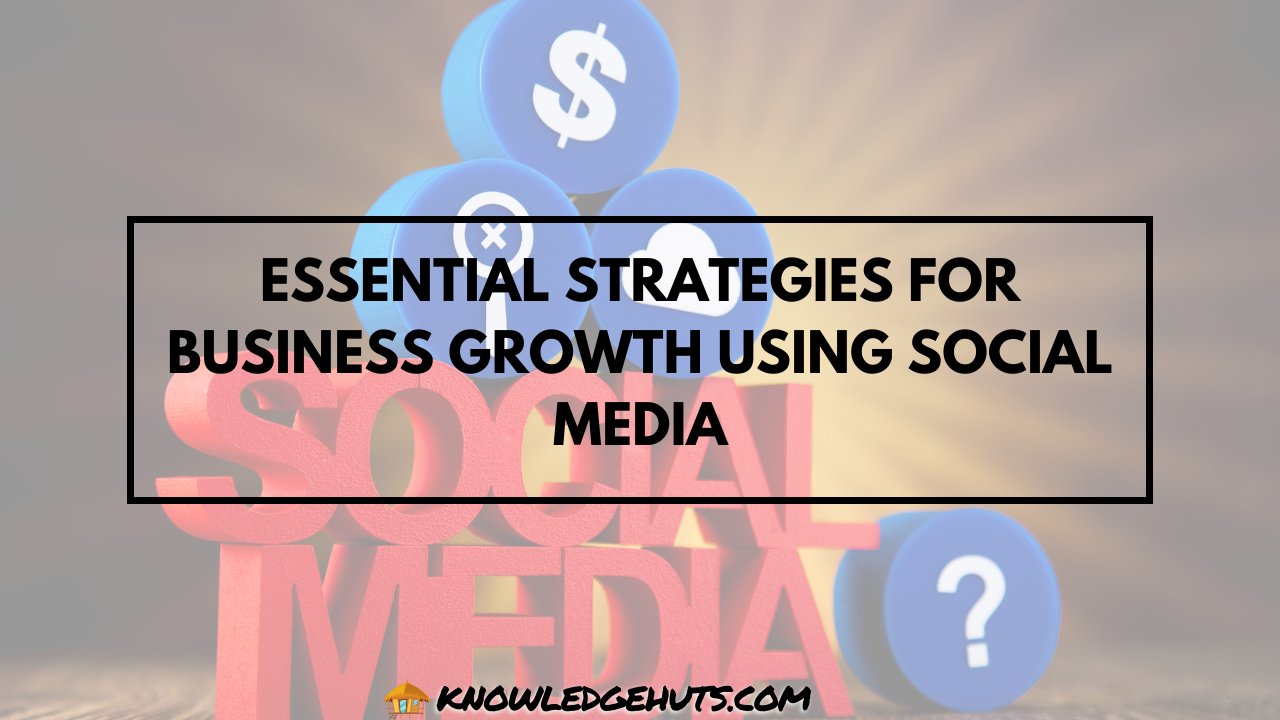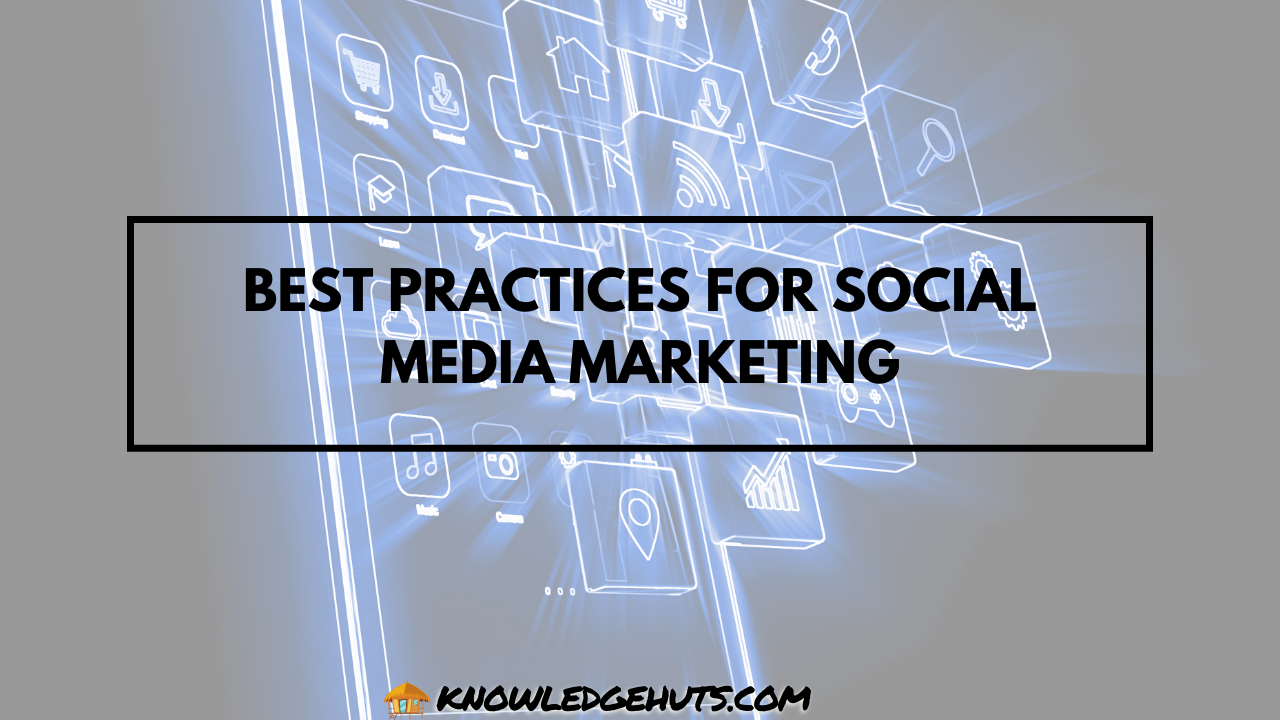Social media has become a necessity in the modern world of communication and presents various opportunities for businesses to reach their audience, upgrade their brand, and grow.
It also comprises online communities that allow users to converge in and exchange different forms of content such as text, images, videos, sounds, stories, posts, and live streams. These platforms help connect with the audience and advertise products/ services to interested customers.
Why social media is essential for businesses
Social media is no longer a supplementary marketing tool but a fundamental component of any business strategy. Its benefits are manifold, including:
- Broader reach: Social media connects businesses with millions of people worldwide.
- Direct communication: Enables direct messaging with customers, boosting engagement.
- Brand enhancement: Assists in building and promoting brand identity.
- Trust building: Transparent communication fosters trust and credibility.
- Rapid growth: Content shared by followers can quickly increase brand visibility.
- Precise targeting: Allows businesses to focus on specific demographics and locations.
- Cost efficiency: Many platforms offer free or affordable options.
- Personalization: Supports tailored communication with individual customers.
- Speed: Facilitates quick dissemination of information.
- Accessibility: Tools are available to anyone with a computer or mobile device.
- Analytics: Provides metrics to evaluate the effectiveness of posts and campaigns.
- Strategic insights: Utilizing marketing mix modeling, businesses can analyze the effectiveness of various marketing channels, including social media, to optimize their overall marketing strategy.
Choosing the right social media platforms
With numerous social media platforms available, selecting the right ones for your business can be challenging. Here’s how to determine which platforms are best suited for your needs:
1. Define your social media goals
Before diving into social media, it’s crucial to establish clear goals. Your objectives will guide your platform selection, content creation, and audience targeting. Common goals include:
– Expanding reach
– Generating leads
– Boosting brand awareness
– Driving website traffic
– Engaging customers
– Providing customer support
– Gaining industry insights
– Building a community
– Improving search engine rankings
– Enhancing brand reputation
Identify which goals align with your business needs and select platforms that can help achieve them.
2. Identify where your audience is active
Understanding where your target audience spends their time is essential. Conduct audience research to define your buyer persona and determine their preferred platforms. Methods include:
– Customer surveys: Ask your audience about their social media habits.
– Paid ads: Use social media advertising tools to target and find your audience.
– Website analytics: Utilize tools like Google Analytics to see where your traffic comes from.
3. Review your content strategy
Different platforms support different types of content. Evaluate the content you already create and how it can be adapted for social media. Common content types include:
– Blog posts: Useful for SEO and driving traffic.
– Podcasts: Great for engaging with industry experts.
– Testimonials: Leverage customer feedback to build credibility.
– User-generated content: Engage your audience by sharing their content.
– Webinars and live streams: Enhance real-time engagement.
– Ebooks and whitepapers: Provide value and generate leads.
– Videos: Highly engaging and shareable.
– Photographs: Showcase your business visually.
Match your content with the platforms that best support its format.
4. Align goals, audience, and content with platforms
Based on your goals, audience, and content, choose the platforms that best align with your business needs. Here’s an overview of popular social media platforms:
Facebook for business
– User base: Over 3 billion monthly active users.
– Strengths: Lead generation, relationship building, diverse content formats.
– Best for: Businesses aiming to connect with a broad audience and engage through various content types.
YouTube for business
– User base: Over 2.5 billion active users.
– Strengths: Video content, tutorials, product reviews.
– Best for: Brands with a strong video content strategy.
WhatsApp for business
– User base: Over 2 billion active users.
– Strengths: Customer service, direct messaging, product catalogs.
– Best for: Businesses focusing on personalized customer interactions.
Instagram for business
– User base: 2 billion users, predominantly under 45.
– Strengths: Visual content, stories, reels, shopping features.
– Best for: Brands targeting a younger demographic with visual content.
TikTok for business
– User base: Over 1.5 billion active users.
– Strengths: Short-form video, viral content, younger audience.
– Best for: Brands looking to create engaging and viral short-form videos.
Pinterest for business
– User base: Nearly 500 million monthly users.
– Strengths: Visual discovery, product promotion, traffic driving.
– Best for: Brands in retail, fashion, and lifestyle aiming to drive traffic through visual content.
Industries benefiting from social media
Entertainment
Entertainment is significantly anchored on social media since it creates awareness and connects with audiences within a short period. Social sites like Twitter, Instagram, and Facebook assist in the marketing of movies, shows, and sometimes music with most of its users going viral.
Retail
Small-scale retail enterprises utilize social networking sites to communicate with customers and to advertise their products. The growth of the internet for purchasing products has gained momentum, hence necessitating the use of social networks as a means of accessing consumers.
Fashion
The fashion industry in particular relies on social media as a tool for setting trends and pulling consumers’ strings. Fashion influencers as well as visual content are vital to the marketing of fashion brands.
Check out some tips to find influencers who are the best fit for your business
Marketing
It is used in marketing agencies due to the following reasons: It is cheaper to use and it targets young people. Social media is a great tool for creativity engagement and ways of standing out on the field.
Real estate
Through social media, real estate agencies can present their products to the market and potential buyers. Facebook, Instagram, and LinkedIn are obligatory for getting in touch with an informed client base.
Banking
Using social media for banking enables engagement with customers, promotion of financial services and products, and resolution of customer complaints. Channels such as Facebook, LinkedIn, and Instagram are utilized to satisfy customer needs and gain their trust.
Final Thoughts
Social media is essential for modern communication, offering businesses unique chances to engage, enhance their brand, and drive growth. To maximize benefits, choose the right platforms, understand where your audience is active, and tailor content to each platform.
As various industries use social media, a strategic presence is crucial for staying competitive and connecting with tech-savvy consumers.








